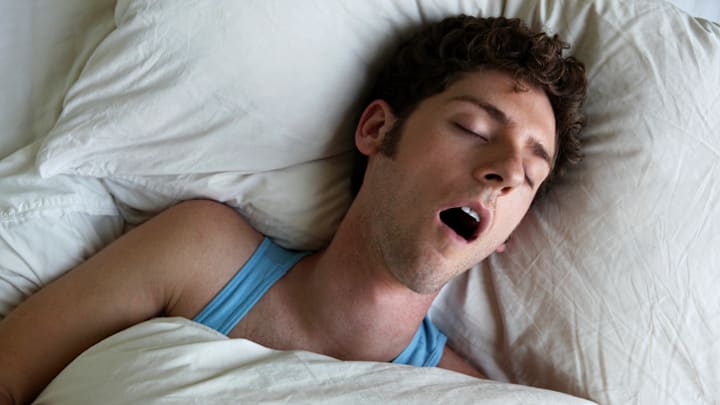Gwyneth Paltrow is a fan of mouth taping. “My heart-rate variability and sleep scores are so much better when I do the mouth tape,” the actress-turned-wellness guru told Glamour in April 2025. She’s one of the many celebrities and influencers promoting mouth taping, which is exactly what it sounds like: You place a piece of skin-safe tape over your lips when you doze off at night to encourage your unconscious body to breathe through your nose as opposed to your mouth.
A new study published in the journal PLOS One, however, argues that the social media trend is not just scientifically sus. The evidence suggests it may actually be dangerous.
Mouth taping is said to have originated with Soviet physiologist Konstantin Buteyko in the 1940s as a therapy for those with asthma and other breathing disorders. Mouth tapers today believe it can improve sleep quality, prevent snoring, reduce bad breath, and even combat allergies.
Medical experts aren’t so sure. “It was concerning to us that celebrities and influencers are endorsing mouth taping without scientific evidence,” senior study author Dr. Brian Rotenberg, an otolaryngologist at London Health Sciences Centre in Ontario, Canada, said in a statement.
A Risk of Asphyxiation
Rotenberg and colleagues conducted a systematic review of published studies looking into the effects of sealing one’s mouth shut during sleep. Of the 10 studies of people with disordered sleep breathing taken into consideration, only two found that taping had a slightly positive effect among people with mild obstructive sleep apnea. The remaining eight papers concluded that mouth taping had no effect or had a negative impact on people’s sleep health.
The authors found that mouth taping could actually worsen sleep-related medical conditions like sleep apnea by obstructing airflow passages and placing greater stress on the respiratory system, potentially resulting in asphyxiation.
“Based on the data presented by these 10 different studies, it seems that there is a potentially serious risk of harm for individuals indiscriminately practicing this trend,” the authors write.
The results are in line with a meta-analysis published in January 2025 in the American Journal of Otolaryngology, which found that the alleged benefits of mouth taping aren’t supported by scientific evidence, though it noted more research is needed on the subject.
“It’s easy for misinformation to run rampant on social media,” study co-author Jess Rhee said in the statement. “We need to make health decisions based on strong scientific evidence. Our hope is that people stop taping their mouths during sleep and recognize it is dangerous.”
Discover More Health and Medicine Stories:
